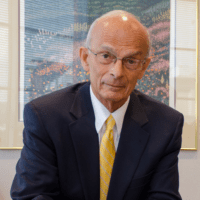Technology advances present school districts with many challenges. In the area of social media, school districts are faced with the challenge of restricting, and in some cases imposing discipline against, employees for comments made through the social media. Some school districts have adopted Social Media Policies with the intention of regulating employees’ speech in the social media with potential disciplinary consequences. Almost universally, challenges are raised against school district Social Media Policies on the basis that they violate the First Amendment free speech rights of their employees.
School districts have the right to limit their employees’ job related speech or employee speech that has the potential to affect school district operations. When a school district establishes that an employee’s expression infringed on legitimate and substantial interests of the school district or are injurious to the school district, then their employee speech rights may be limited. Also, there is no First Amendment free speech protection when an employee is speaking to an issue that is related to their job duties. However, when an employee speaks as a citizen on a matter of public concern, it is very likely that type of speech will have First Amendment protections. Whether an employee’s speech addresses a matter of public concern must be determined by considering context, form and concern based on the totality of the record.
In applying the law governing First Amendment rights to the drafting of a Social Media Policy, some initial inquiries include:
- What is the mischief the Policy is addressing?
- When can a school district exercise control over employees’ private speech?
- What is private versus public speech?
- Is a Social Media Policy necessary if the employee’s conduct in using social media is covered by other policies and/or statutory protections?
- How broad should the Social Media Policy be?
- Is the Policy clear regarding the specific kind of speech that is restricted?
In answering some of the above inquiries, the drafting of the Policy must draw a clear distinction between employee speech when engaged in as a citizen speaking on matters of public concern and speech that can fairly be restricted because it is related to the employees’ job duties or can potentially have a serious negative impact on a school district’s operations. Policy language prohibiting speech that is “embarrassing,” “damaging,” “annoying,” “inappropriate,” “offensive,” or “promoting destruction of property” may be overbroad, difficult to interpret, and hard to enforce. It must be remembered that when dealing with First Amendment free speech protections, sometimes offensive speech may be protected speech even when employees are involved. The language of Social Media Policies must be carefully drafted to avoid these legal challenges under the First Amendment.

